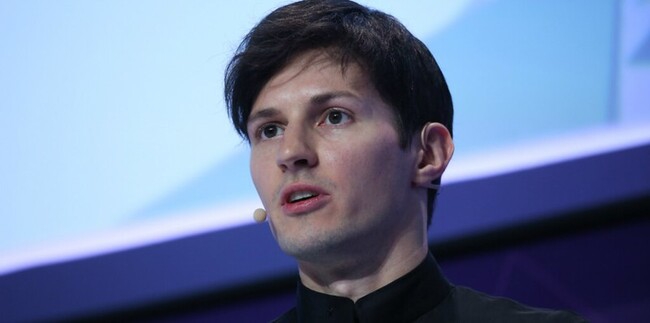Pavel Durov Says Bitcoin Supported His Lifestyle, Not Telegram

Highlights:
- Pavel Durov invested millions in Bitcoin early, holding through crashes for long-term gains.
- He views Bitcoin as secure, censorship-resistant money, unlike traditional government-issued currencies.
- Telegram’s TON blockchain supports NFTs and scalability, despite regulatory hurdles and market volatility.
On Lex Fridman’s podcast, Telegram founder Pavel Durov discussed his enduring belief in Bitcoin (BTC). He said that back in 2013, he bought several thousand BTC at around $700 each, putting in a few million dollars even though the price was at a local high. When Bitcoin later dropped below $200, many ridiculed him, but Durov told them, “I’m not going to sell it. I believe in this thing. I think this is the way money should work. Nobody can confiscate your Bitcoin from you. Nobody can censor you for political reasons.”
Durov said Bitcoin helped him stay afloat, noting that governments are “printing money endlessly.” He added that Bitcoin could reach $1 million because “nobody is printing it,” its production will eventually stop, and it has predictable inflation. He emphasized that Bitcoin will always exist, unlike fiat currencies, whose future remains uncertain.
Pavel Durov Attributes Financial Success to Early Bitcoin Investments
Pavel Durov addressed the misconceptions about his lifestyle, explaining that some people assume his ability to rent luxury locations or fly privately comes from Telegram. He clarified that, in reality, Telegram operates at a personal loss for him and that Bitcoin has been what allowed him to remain financially stable. “Like I said, Telegram is a money-losing operation for me personally. Bitcoin is something that allowed me to stay afloat,” he said.
Durov also pointed out that Bitcoin carried unique advantages, as it could not be confiscated or censored for political reasons. For him, Bitcoin was more than just an investment. It gave independence and security. His words also showed how many tech leaders built their fortunes through early crypto investments.
TON Blockchain Tackles Scalability and NFT Growth Despite Regulatory Challenges
Pavel Durov, detained in France a year ago over allegations that Telegram users committed criminal activities, also spoke about the Telegram Open Network. Developed between 2018 and 2019, this network was designed to serve as a blockchain infrastructure for Telegram. He further noted that Bitcoin and Ether lack the scalability needed to handle the massive traffic from Telegram’s hundreds of millions of users.
Durov explained that the main breakthrough was built-in scalability via “shardchains.” Yet, despite completing the technology, Telegram was unable to launch it because of US regulatory constraints. Now named The Open Network, the project remains closely tied to Telegram and is increasingly being used in the NFT space.
“TON has become, I think, the largest or the second largest blockchain in terms of daily NFT trading volumes,” he said. Its native token, Toncoin, once touched $8.25 last year but has since dropped by over 67%, showing how unstable the digital asset market can be.

eToro Platform
Best Crypto Exchange
- Over 90 top cryptos to trade
- Regulated by top-tier entities
- User-friendly trading app
- 30+ million users
eToro is a multi-asset investment platform. The value of your investments may go up or down. Your capital is at risk. Don’t invest unless you’re prepared to lose all the money you invest. This is a high-risk investment, and you should not expect to be protected if something goes wrong.
You May Also Like

CME Group to launch options on XRP and SOL futures

Ondo Finance launches USDY yieldcoin on Stellar network
